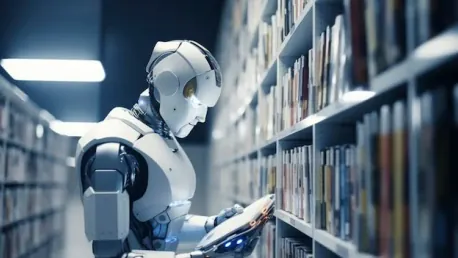The rapid advancement of artificial intelligence technology has sparked a multitude of legal questions, particularly concerning the use of copyrighted material for AI training. This complex issue has led to numerous court cases, with varying rulings that reflect the ongoing struggle to balance innovation with intellectual property rights. A prominent example involved a federal appeals court ruling against granting copyright protection for artwork solely created by AI, as the U.S. Copyright Office maintained that human involvement in the creation process is essential. Meanwhile, an AI company, Anthropic, successfully defended its use of copyrighted song lyrics in California, highlighting the legal tussle between fair use claims and intellectual property protection.
Recent Legal Rulings and Their Implications
A significant recent case involved a man’s request for copyright protection for a work entirely generated by AI. The federal appeals court rejected the request, underscoring that human contribution remains a critical criterion for copyright protection. This landmark ruling reflects the current legal interpretation that AI-generated works without human involvement do not qualify for copyright. This decision aligns with the U.S. Copyright Office’s stance and sets a critical legal precedent, signifying that the traditional concept of authorship must encompass human creativity and intention.
In a contrasting case, the AI startup Anthropic faced legal challenges from major record labels, such as Universal Music Group, for using copyrighted song lyrics to train its AI model, Claude. The California court ruled in favor of Anthropic, as the record labels failed to demonstrate that the use of their lyrics had directly caused them any measurable damage. This ruling highlights the intricate balance courts must strike between protecting intellectual property and fostering technological innovation. Despite these rulings, both cases are expected to go through the appeals process, indicating that the legal landscape surrounding AI and copyright is far from settled.
Academic Support for Fair Use Defense
AI companies often defend their use of copyrighted materials for training purposes by invoking the fair use doctrine. This legal principle, supported by some academics and researchers, posits that such use can be justified to promote scientific progress and innovation. Supporters of this stance argue that restricting access to copyrighted materials could stifle AI development and hamper technological advancements. They point to past judicial decisions like Authors Guild, Inc. v. Google, Inc., where the digitization of books was deemed fair use, as a precedent that could extend to AI training.
However, the rapid evolution of technology introduces new ethical dilemmas. Allegations have been made against AI companies, such as Meta, for utilizing pirated books in their AI training processes. These actions complicate the fair use argument and bring to light the potential ethical breaches in using copyrighted materials without proper authorization. It is clear that the legal framework is evolving, requiring AI developers to navigate a complex and uncertain legal terrain to ensure compliance with copyright law while fostering innovation.
Navigating an Evolving Legal Framework
The overarching consensus within the legal and technological communities is that current laws struggle to keep pace with the swift advancements in AI technology. This situation draws attention to the pressing need for updated legal frameworks that can provide clear and equitable guidelines regarding the use of copyrighted materials for AI training. As legal proceedings continue, the outcomes of these cases will significantly influence the future interactions between AI development and copyright protections.
Ultimately, the tension between encouraging technological innovation and protecting intellectual property rights is a pivotal challenge. As courts rule on these cases, the decisions will inevitably shape the boundaries and possibilities for AI applications. The ongoing legal battles highlight the necessity for balanced approaches that protect the creative rights of content owners while also enabling the AI field to advance without unnecessary hindrances.
Future Considerations for AI and Copyright Law
The rapid development of artificial intelligence technology has ignited numerous legal questions, especially regarding the use of copyrighted material for training AI systems. This issue has become increasingly complex, leading to a host of court cases with diverse rulings that reflect the ongoing challenge of balancing technological innovation with the protection of intellectual property rights. A notable case involved a federal appeals court deciding not to grant copyright protection for artwork created exclusively by AI, arguing that the U.S. Copyright Office requires human involvement in the creative process. In a different scenario, the AI company Anthropic successfully defended its use of copyrighted song lyrics in California, underscoring the legal conflicts between claims of fair use and the safeguarding of intellectual property. These contrasting rulings highlight the evolving nature of law and technology, as courts struggle to set clear guidelines in an increasingly digital world.









